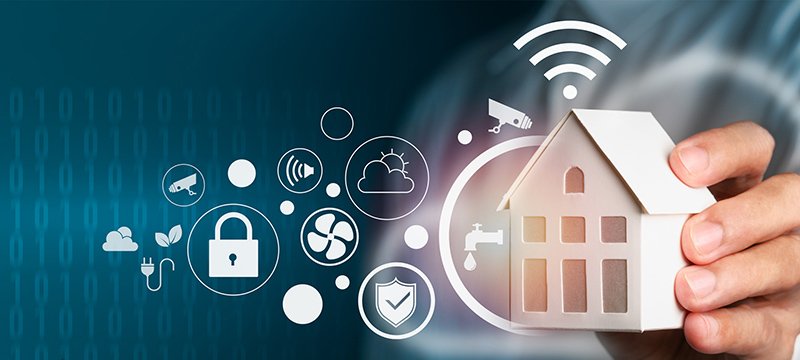How Smart Devices Are Changing Our Lives: The Revolution of Connectivity and Convenience

In the last decade, the rise of smart devices has revolutionized the way we live, work, and interact with the world around us. From smartphones to smart home systems, wearable tech to AI-powered appliances, smart devices are quickly becoming an integral part of our daily routines. These devices, designed to make life easier, more efficient, and more connected, are transforming various aspects of our personal and professional lives.
In this article, we will explore how smart devices are shaping our world, improving our lifestyles, and changing the way we interact with technology.
What Are Smart Devices?
Smart devices are electronic gadgets that connect to the internet and often communicate with other devices or systems to perform specific functions. They can be controlled remotely via mobile apps, voice commands, or even through automation. These devices typically use sensors, data analytics, and artificial intelligence (AI) to enhance their functionality and provide users with more convenience and control.
Some of the most popular categories of smart devices include:
- Smartphones
- Smart home appliances (e.g., smart thermostats, lights, locks)
- Wearable technology (e.g., smartwatches, fitness trackers)
- Smart TVs and entertainment systems
- Voice assistants (e.g., Amazon Alexa, Google Assistant, Apple Siri)
- Smart security systems (e.g., cameras, doorbells)
How Smart Devices Are Changing Our Lives
1. Improving Convenience and Efficiency
One of the most significant impacts of smart devices is the unparalleled convenience they bring to our everyday tasks. Smart technology makes previously time-consuming or complex tasks easier and faster. Here’s how:
- Smartphones and Tablets: These devices have become the ultimate hub for communication, work, and entertainment. Whether it’s texting, emailing, browsing the web, or managing finances, smartphones put all of these capabilities in the palm of your hand.
- Smart Home Devices: Smart thermostats like Nest or Ecobee allow homeowners to control their home’s temperature from anywhere, optimizing energy use and making sure the home is always comfortable. Smart lighting systems can be programmed to turn on and off at specific times or adjusted remotely, saving both time and energy.
- Automated Tasks: Voice assistants like Amazon Alexa or Google Assistant can control lights, set reminders, play music, or provide updates on the weather and traffic—all with just a simple voice command. For those with smart home hubs, these devices can control nearly every aspect of home automation, allowing users to streamline their lives.
By automating routine tasks, smart devices allow us to focus on more important aspects of our lives, ultimately improving our efficiency and productivity.
2. Enhancing Personal Health and Fitness
Smart devices have revolutionized the way we approach health and fitness. Wearable technologies, such as smartwatches and fitness trackers, help individuals monitor and improve their health in ways never seen before.
- Fitness Trackers (e.g., Fitbit, Apple Watch): These devices help track daily activity levels, monitor heart rates, count steps, and even provide insights into sleep patterns. Some advanced trackers can even detect irregularities in heart rhythms or warn of potential health issues, encouraging individuals to seek medical attention if needed.
- Smart Health Devices: From smart scales to blood pressure monitors, there are a variety of devices designed to help individuals manage their health from the comfort of home. Many of these devices sync data to smartphones or health apps, giving users valuable insights into their well-being.
- Telemedicine and Health Apps: With the rise of telehealth, individuals can now consult doctors and health professionals remotely, using smart devices like smartphones or tablets. Many apps also offer mental health support, allowing users to access therapy or mindfulness exercises at their convenience.
These advancements have not only empowered individuals to take control of their health but also helped reduce healthcare costs by promoting early detection and preventative measures.
3. Revolutionizing Communication and Connectivity
Smart devices have drastically altered the way we communicate, making the world a more connected place. Instant messaging, video calls, and social media apps allow us to stay in touch with loved ones and colleagues around the globe, regardless of distance.
- Video Conferencing and Collaboration: Platforms like Zoom, Microsoft Teams, and Slack have become essential for businesses, enabling employees to work remotely and collaborate effectively. Whether for business or personal reasons, video calls have replaced traditional phone calls as a more interactive way to communicate.
- Social Media Connectivity: Social media apps on smartphones allow users to instantly connect with friends, share content, and stay updated on global events. Smart devices also enable instant notifications, ensuring that users are always in the loop.
- Voice Assistants and Smart Speakers: Devices like Amazon Echo or Google Nest have become virtual assistants, helping users make calls, send messages, or get real-time answers to questions through voice commands.
By enhancing communication, smart devices have made the world more connected, fostering relationships and enabling people to access and share information more easily than ever before.
4. Boosting Home Security and Safety
The introduction of smart security devices has significantly improved safety in homes and workplaces. Smart security systems now offer features that were once available only in high-end commercial applications.
- Smart Cameras and Doorbells: Devices like Ring and Nest Cam allow homeowners to monitor their property in real time from anywhere. These devices come equipped with motion detection, night vision, and even facial recognition, helping individuals stay secure and informed about who is at their doorstep.
- Smart Locks: Keyless entry systems and smart locks provide an extra layer of security, allowing homeowners to lock or unlock their doors remotely, grant access to others, and even track who enters and exits their home.
- Environmental Monitoring: Smart sensors can detect smoke, carbon monoxide, or water leaks, immediately alerting homeowners to potential dangers. These proactive alerts help prevent disasters and ensure peace of mind.
By improving security and emergency response, smart devices help keep homes safer, offering real-time alerts and instant action.
5. Enabling Sustainable Living
As environmental concerns grow, smart devices are playing a key role in promoting sustainability. With the help of intelligent technology, individuals and businesses can reduce their environmental footprint.
- Smart Thermostats: As mentioned earlier, smart thermostats optimize energy use by adjusting heating and cooling systems according to the homeowner’s preferences. This results in energy conservation and lower utility bills.
- Energy-Efficient Appliances: Smart home appliances, such as washing machines, refrigerators, and dishwashers, can be programmed to run at optimal times, reducing energy consumption and minimizing waste.
- Smart Gardens: Technology is even finding its way into gardening. Smart watering systems use weather data and soil moisture sensors to ensure that plants receive the right amount of water, reducing water waste.
These smart technologies help reduce waste, save resources, and make our homes and businesses more eco-friendly.
The Future of Smart Devices
As technology continues to advance, the capabilities of smart devices are expected to grow even further. The integration of 5G networks, AI, and IoT (Internet of Things) will make smart devices even more interconnected, intelligent, and seamless. The development of smart cities—where everything from traffic lights to waste management is powered by smart technology—will transform urban living, making cities more efficient and sustainable.
Furthermore, as artificial intelligence continues to evolve, we can expect even more personalized experiences with smart devices. Devices will learn and adapt to our habits, preferences, and routines, creating a truly customized and intuitive environment.
Conclusion
Smart devices are changing our lives in profound ways, making everyday tasks more convenient, improving our health and safety, and enhancing communication and connectivity. As technology continues to evolve, these devices will become even more integrated into our lives, offering endless possibilities for innovation and improvement. From simplifying mundane tasks to creating new experiences, smart devices are paving the way for a more connected, efficient, and sustainable future.
For more insights on how technology is shaping our world, visit 247Newstime.online.



